Review for Arakawa Under The Bridge: Season 1
Introduction
When did trolls move onto the Internet? The world used to be a simpler place when I was a child. Goats that wanted to cross bridges needed to contend with trolls under them. Suddenly goats are too good for bridges; they have personal chauffeurs, get helicoptered across running water, or have the pasture brought to them. It left trolls without a job, so they switched to the Internet, and the various bulletin boards and forums, where they leave little nuggets of spite for the unsuspecting user. Of course with the kind of oddballs that now live under bridges, as seen in MVM’s latest series, Arakawa Under the Bridge, you can understand why trolls have had to find someplace new to lurk.
I first flagged up Arakawa Under the Bridge as a show I simply had to watch when I saw its trailer earlier this year, and it looked a lot like a mellow FLCL, or a hyper NieA_7. It promised wacky and surreal comedy with a little bit of social comment thrown in. Now that I have the review discs in my hands, and I see that it’s been animated by none other than Studio SHAFT, you can throw a little Bakemonogatari in there as well. So FLCL zaniness, crossed with NieA_7’s social commentary, presented with Bakemonogatari’s visual style. I’m getting goosebumps just thinking about it. Incidentally this is the first season of Arakawa Under the Bridge. Season 2, or Arakawa Under the Bridge x Bridge will be released next month.
Ko Ichinomiya has had an unconventional upbringing. Given that he’s heir to one of the biggest companies in the world, that’s a given, but his father from an early stage decided to instil self-reliance and independence in his son, to the degree that if he burped his baby boy he expected payment in kind. If there is one thing that Ko understands, it’s the family motto, ‘Never be indebted to anyone’. Which makes it all the more distressing for Ko to have his life saved by a blonde haired girl named Nino, when he falls off a bridge.
He’s rich; he can give anything to settle the debt, money, property, investments. Nino wants to experience love with him. Nino wants him to live with her. Nino lives under the bridge. Nino is from Venus...
Nino’s odd enough, but she’s almost normal compared to the other residents under the bridge, where a community of oddballs has developed. The Chief is a kappa, a water sprite, and definitely not a man in an ill-fitting kappa suit. All residents under the bridge get renamed by him, and so Ko Ichinomiya becomes Recruit. There’s Hoshi who wants to be a rock star, and whose head literally is a star. Shiro can only walk on white lines, there are the metal masked twins, there’s even a church, run by a nun called Sister, who’s actually a man, with special forces training, and a hard-boiled attitude to sermons. The dairy farm is run by the woman with the most evil personality in existence, and who can take Sister down with a word, the vegetable garden is run by the clumsiest girl in the world, who protects her vegetable patch with banana peels. The blonde girl from Venus may just be the sanest of the bunch!
Thirteen episodes of Arakawa Under the Bridge are presented across 2 discs from MVM.
Picture
Arakawa Under the Bridge gets a 1.78:1 anamorphic transfer on these DVD discs, and courtesy of Hanabee Entertainment in Australia, it gets a native PAL transfer at that. It’s clear, sharp and colourful throughout, just what you need to bring across Studio SHAFT’s typically off the wall and inventive animation. The characters aren’t the only thing that’s quirky in this show, with different camera angles, visual techniques, and directorial styles used to bring off each episode with panache, and just as in shows like Bakemonogatari, it’s one that will definitely pay off with repeated viewings. The animation is smooth and detailed, and that detail comes across just as well when up-scaled to a flat panel HD display. The only English language Blu-ray release is from NISA in the US, and that’s on Region A locked discs.
Sound
Arakawa is a subtitle only release, and the only audio track is the DD 2.0 Stereo Japanese track. The audio is clear, without any issues with dropouts or glitches. The voice cast is effective and suited to the characters, bringing across the show’s surreal humour with energy. The music also suits the show well, with a very catchy opening theme and engaging incidental music. The end theme is a little forgettable though. The translated English subtitles are in a clear, white font, and are accurately timed, free of error. In episode 7, there was one place where two subtitle captions overlapped, but this was a small, isolated incident.
Extras
We do get a little more than usual with the extra features on the UK release, with 10 trailers for the show, un-subtitled, and an End Card Gallery with 13 images. It’s topped off with trailers for Dream Eater Merry, Bodacious Space Pirates, and ef ~ a tale of memories, all of which are available in the UK from MVM, and Toradora, which isn’t.
But it’s still slim pickings for PAL territories when compared to the US Region 1/A combo release from NISA, which has sourced the ten Japanese voice actor commentaries for the episodes and has subtitled them. Those I would have liked to have seen, I mean heard, well... read.
Conclusion
Take a walk on the weird side! Arakawa Under the Bridge is a show that got under my skin. It took a few episodes to do so, but I eventually clicked with its left-field sense of humour, and the show began to grow on me. I started off nonplussed, then got in touch with what it was trying to do, started to smile, to chuckle, and by the time the final episode had rolled, I was guffawing. It’s definitely an acquired taste, but it’s one that is well worth acquiring.
At first, Arakawa Under the Bridge reminded me of Sion Sono’s Himizu, a dark comic drama set by a river where a group of unlikely homeless people live in makeshift shelters. In Himizu they are those displaced by disaster, people you’d least expect to be homeless, and as a result there’s a degree of absurdity to their lives. But Himizu is a character drama first and foremost, and takes its story in an intense direction. Arakawa Under the Bridge plays it purely for surreal laughs, and there’s a distinct lack of drama here. It also plays like a sketch show format, with little need for an overall narrative and opting more for humorous vignettes.
As such it’s a little hard to describe. It’s one of those shows which you recommend by saying, “just watch it and see if you like it”. As I said previously, it was a little like a laid back FLCL, or maybe a hyped up Niea_7, all given the Studio Shaft treatment when it comes to the visuals. It isn’t as esoterically directed as Bakemonogatari, but it still plays with perceptions, offers different styles, and creates a unique visual experience.
It’s really about the characters and their various eccentricities. Ko Ichinomiya is the protagonist of the series, and ostensibly the most normal of the lot. Even still, his upbringing by his strict father has left its mark on him, a refusal to accept help from anyone else, a determination never to be indebted that leads him into the bizarre situation he find himself in. If he gets into debt, he actually has an allergic reaction to it, suffering a seizure until he can make good on what he owes. When he owes someone his life, that makes it a difficult debt to pay, especially as Nino insists that he become her lover.
It’s an odd sort of relationship though, as Nino claims she is an alien from the planet Venus. She’s naive and innocent at first glance, and her idea is for Ko, or Recruit as he is soon dubbed, to teach her all about love by example, and given the usual anime awkwardness that results when male and female are in close proximity, even a peck on the cheek is a major development. When it’s someone as naive as Nino, love becomes a little harder to define and explain, and it becomes a series long courtship. The thing is that Nino’s naivety, her blank slate perspective on the world causes Recruit to rethink how he sees the world as well.
It would be pretty plain sailing for the two erstwhile lovers, were it not for the other residents of the commune, who add to the oddity. The chief of the colony is Chief, a man in a kappa suit who insists that it isn’t an ill-fitting suit, that he is a water sprite. He’s the one who names everyone in the commune, and everything about him rubs the straight-laced Recruit the wrong way. Then there is Hoshi, a man wearing a star mask (hoshi is Japanese for star) who is the local musician. He’s also in love with Nino, and serves as a rival to Recruit. The twins are children who ‘escaped’ from a test laboratory, and wear metal helmets so they can’t be detected. Unhappily, the metal helmets also seal their special powers, turning them into mere humans. They run the local steel drum baths.
Serving their spiritual needs is Sister, a nun who inhabits the local church; except Sister is also a mercenary with a scar on his face, who delivers his sermons at machine gun point. Soon joining them is Stella, a cute little English girl from an orphanage where Sister once worked. Ostensibly cute, adorable and sugary, she hulks out when Recruit is in range, constantly bullying him into submission, and reminding him that he’s the lowest rung on the ladder. Maria runs the local dairy farm, and has the personality of a dominatrix, and to her, Recruit isn’t even on the ladder, he’s something unpleasant on the heel of her stilettos, literally. Sister is in love with her, but she treats him with just as much contempt, causing his scar to split open and spray blood whenever she puts him down.
These and other bizarre characters inhabit the riverbank under the bridge, and make Recruit’s life even more surreal, constantly causing him to re-evaluate his perspective on the world. His original life and his new life collide when the employees from his company come looking for their boss, and things get even more complicated near the end of the run, when his father decides to deal with his wayward son. It’s around here that the show develops something of an ongoing narrative, but you’d never realise it.
Somewhere around this time you begin questioning if these people are actually just homeless, delusional and unable to cope with reality, or if they really are who they believe they are. Is Nino from Venus, is Recruit actually the scion of a global spanning corporation, or is it all in their heads? In the end it doesn’t really matter what’s real or not, the joy comes in the show’s comedy, its surreal take on the world, and in between all the silly humour, it makes a few cogent observations about the world we live in.
Arakawa Under the Bridge is still pretty hard to describe, but it’s very easy to recommend. I love this show. Its surreal brand of funny is just my cup of tea. The best thing that I can suggest is that you give it a try to see if you like it too. As for me, I can’t wait to get my hands on the second series. Fortunately we’ll only have to wait a month.
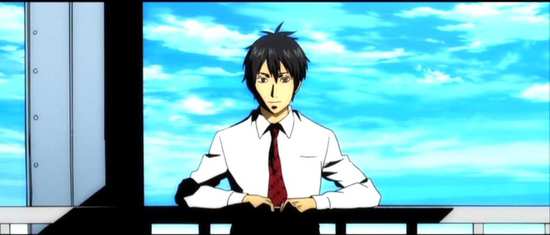
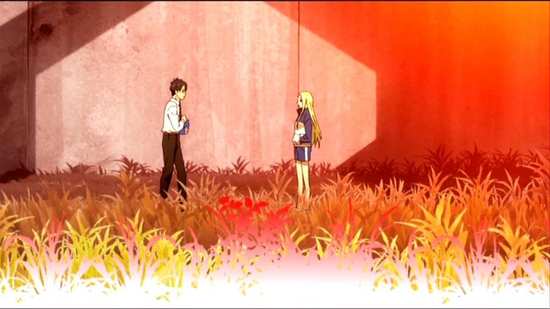
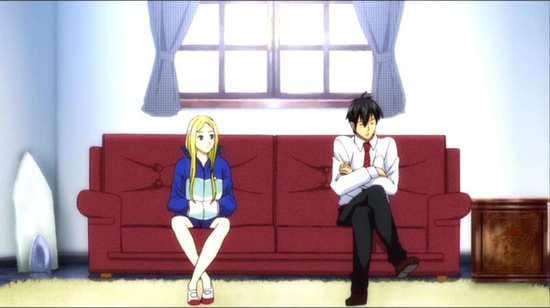
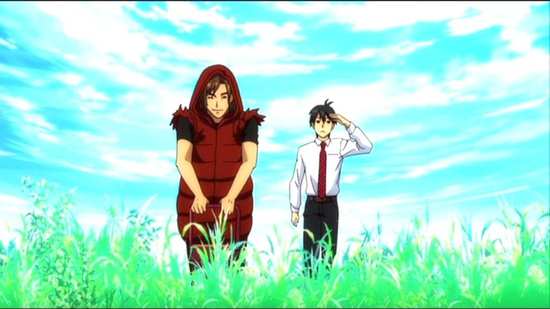
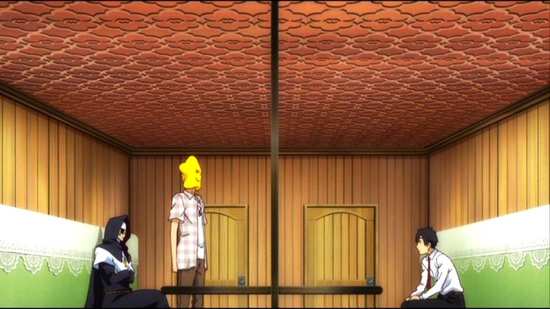
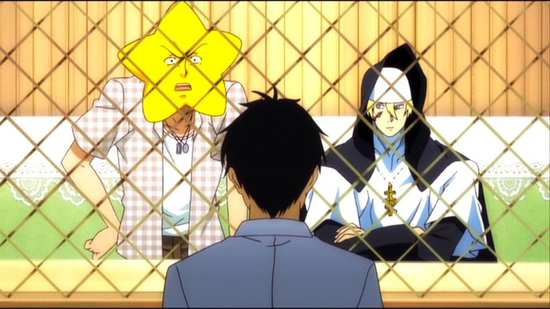
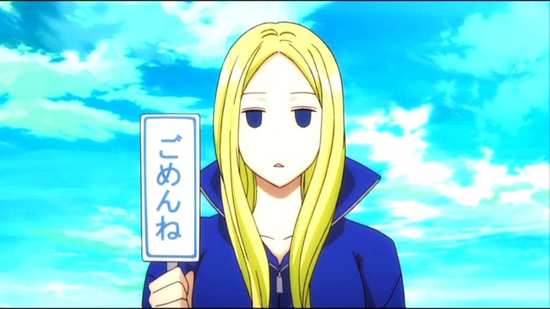
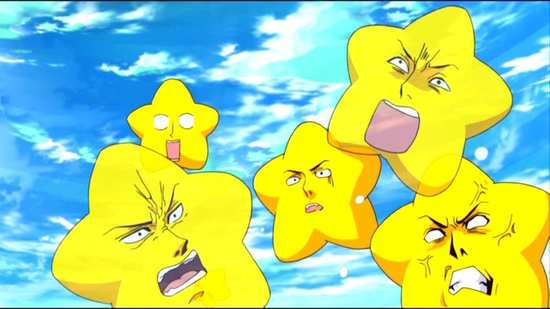
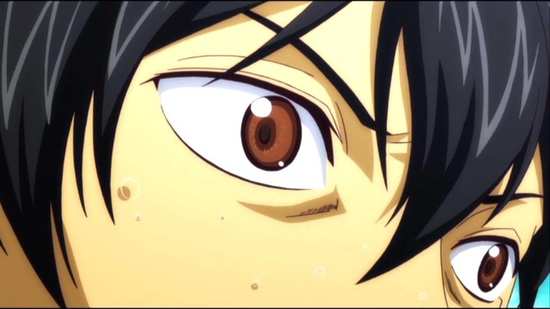
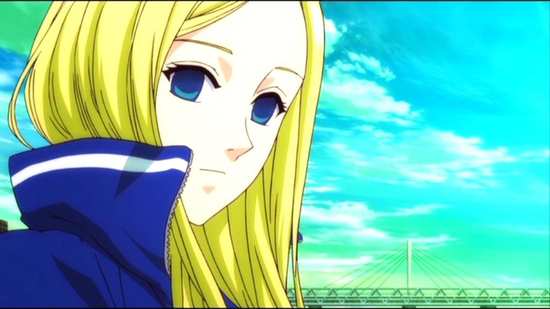
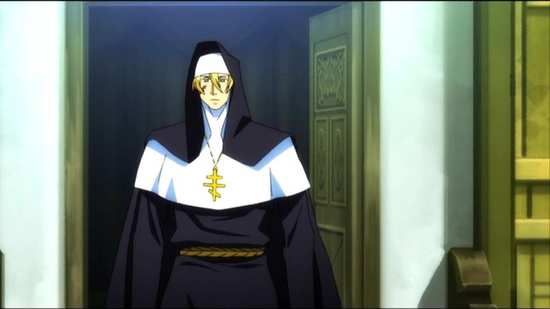
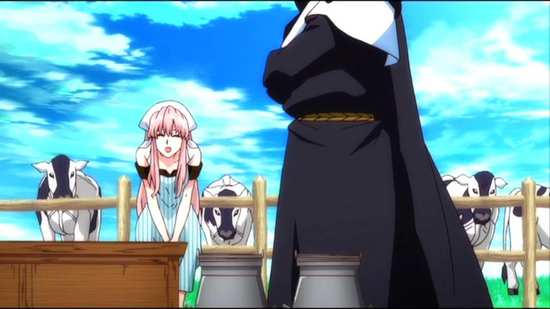
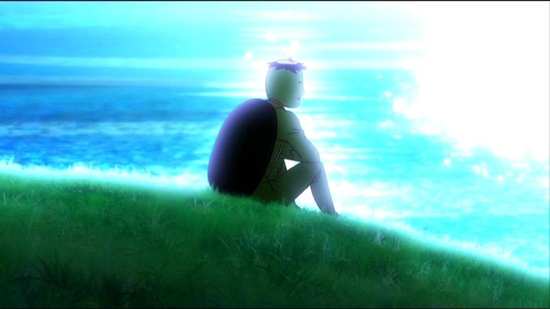
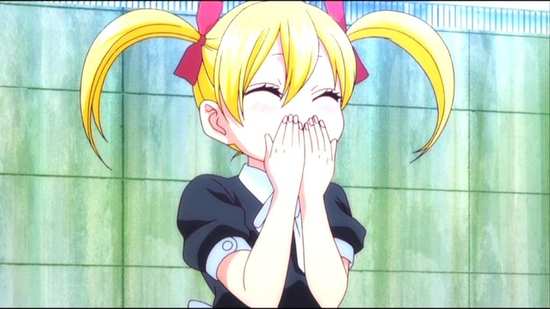
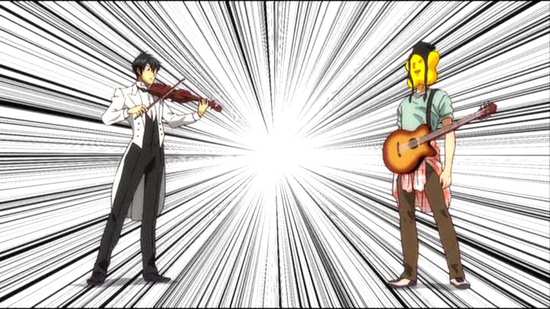
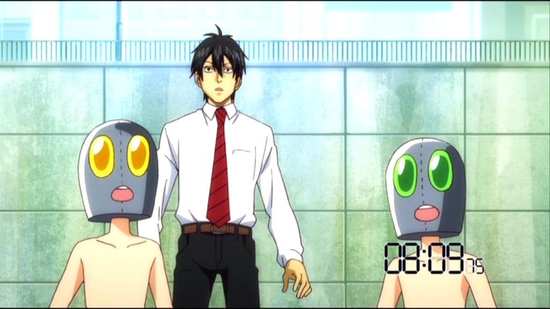
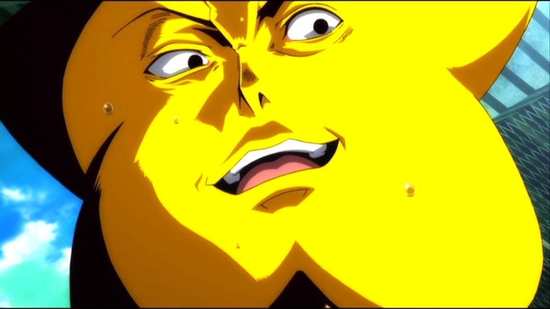
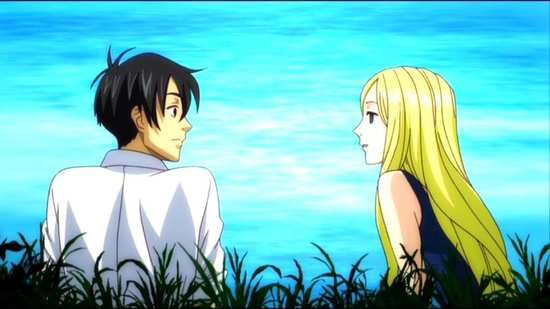
Your Opinions and Comments
Be the first to post a comment!